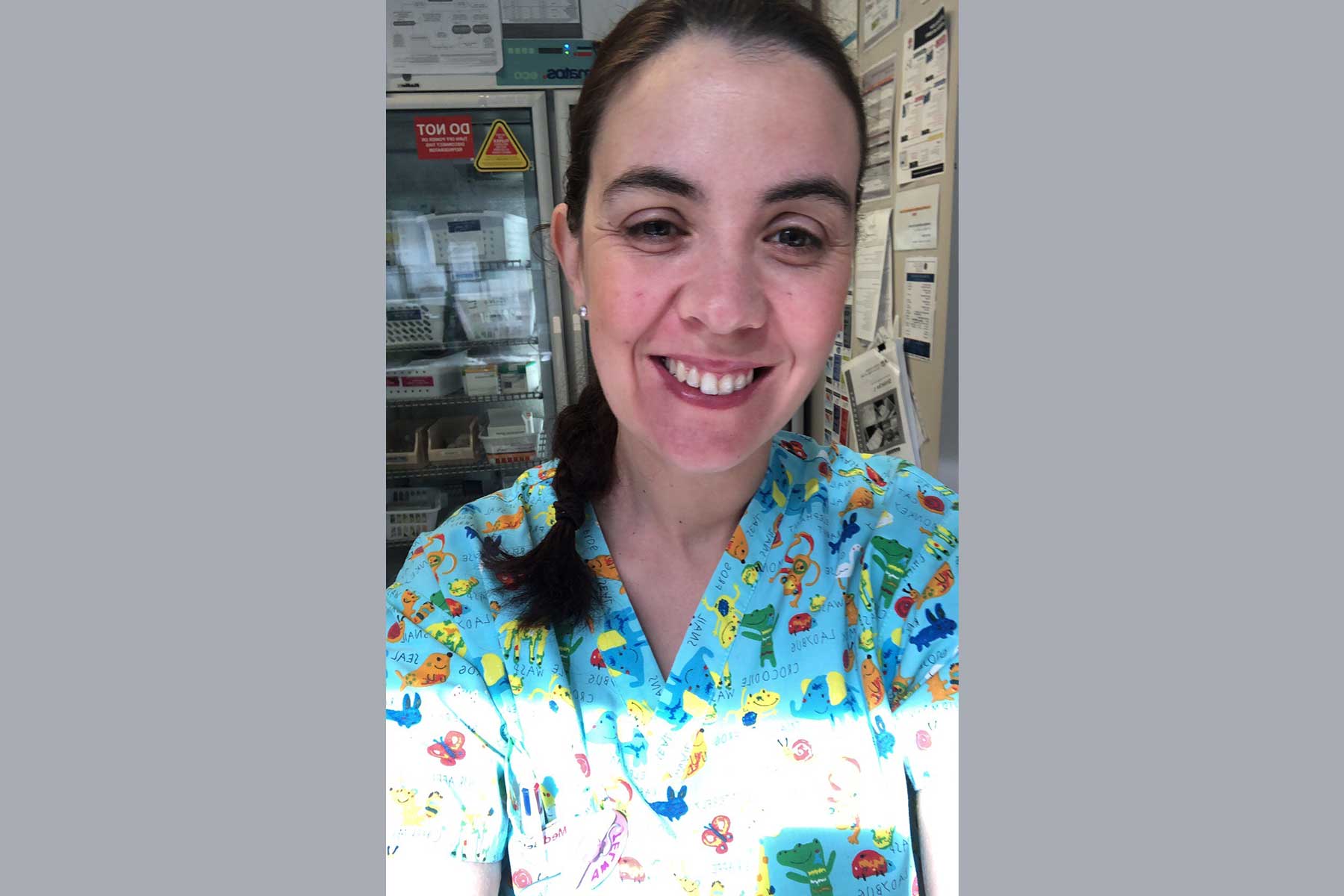Featured Image: Registered Practice Nurse Telma Pinto MACN at work during flu season. Supplied.
For most Australians accessing primary health care, the first place they go is to a general practice. As soon as our consumers step into the practice, they are greeted by a practice nurse, who helps in support, management, education and overall health care.
To look more in-depth at how these practice nurses influence the health of our communities, we spoke to practice nurse Telma Pinto MACN about what a typical day is like.
What is practice nursing?
Practice nursing is a primary care specialised field of nursing where nurses provide care in the community. We work with individuals and families across the lifespan from pre-conception to end-of-life care.
Practice nurses work in a general practice setting. They are part of a multidisciplinary team that includes general practitioners (GPs), allied healthcare professionals (such as physiotherapists, dietitians, chiropractors etc.) and non-clinical support staff like medical receptionists.
General practices are part of local Primary Health Networks (PHNs). These networks liaise directly with doctors and nurses to provide advice and support, maximising community health outcomes by identifying specific population groups that might benefit from more targeted interventions.
Practices that nurses work in are independently accredited under the Royal Australian College of General Practitioners (RACGP) Standards for General Practice. These standards include core principles that guide GPs and practice nurses on establishing and implementing policies and procedures so the highest level of care is always provided.
Practice nurses are commonly active participants in the accreditation process. The practice nurse has a vital role in areas such as infection control, immunisation administration, cold chain management, and quality and safety policies and procedures, among others.
Dynamics of nursing care in general practice are constantly evolving. Factors such as the size of the practice, the population needs of each specific community and government health policies have a large impact on how practice nurses shape their interventions.
However, the main goal remains to empower individuals and families to make the best-informed decisions regarding their health journey and provide holistic nursing care that meets the needs of each person.
A day in the life of a practice nurse
A day in the life of a practice nurse is never the same. Nurses in general practice usually have a patient list allocated that will vary according to the dynamics of the practice that they work in.
On the same day practice nurses can provide completely different nursing interventions such as immunisations, comprehensive healthcare assessments, chronic disease management, assist in surgical procedures, occupational health, wound care and triage.
Immunisations are a large part of general practice nursing. We not only provide childhood immunisations but also immunisations for adults and special vulnerable groups, such as refugees and people with immunocompromised systems.
Due to the complexity of vaccine administration and its constantly evolving nature, a large majority of practice nurses decide to pursue further studies and become authorised nurse immunisers. Authorised nurse immunisers can independently administer authorised vaccines without a medical practitioner, allowing nurses to conduct nurse-led clinics to provide specialised vaccine advice.
Chronic disease management is also administered in practice nursing. During specialised nursing appointments, patients and nurses build chronic disease management plans together that are specifically tailored to the individual’s needs.
A large component of these assessments is health education, aiming to increase health literacy. Increased health literacy improves disease management and establishes goals that are realistic to every part of the person’s life.
Care coordination is also vital, as nurses often need to coordinate with external healthcare teams to ensure the adequate follow up, referring patients to services like My Aged Care or community nursing organisations.
Another component of a practice nurse’s day includes assisting with minor surgical procedures. These procedures are done in combination with the GP and include removal of skin lesions, conducting vasectomies, skin laceration repairs, preventative health tests, contraception procedures and removal of foreign bodies.
Nurses are an essential part of these procedures through infection control, monitoring policy and procedures are being followed, and being an advocate for the patient and family.
Finally, practice nurses support patients through triage and emergency care. Chest and abdominal pain, work accidents, falls, pregnancy complications and paediatric presentations are common and require practice nurses to have an extensive understanding of principles of emergency escalation and care. Nurses are often the first person assessing these patients needing to escalate and to intervene appropriately.
In conclusion, practice nursing is a diverse field of nursing that requires specialised knowledge but also offers the opportunity of establishing long-term relationships with patients and families. Being able to provide care to all individuals in a family unit allows practice nurses to have a deeper insight into patient needs, resulting in improved outcomes and a high level of professional satisfaction.
Telma Pinto MACN
Telma Pinto RN, CNL, ANI, MACN is an experienced Registered Nurse currently working as Clinical Nurse Leader and is a proud Stage Four ACN Emerging Nurse Leader. She has been leading and managing a team of skilled Registered and Enrolled nurses for the Reliance Medical Group since 2020, has over five years’ experience in Primary Care and is an Authorised Nurse Immuniser. Telma completed her nursing degree in Portugal and has lived on the NSW Central Coast since 2016 with her family. She is passionate about health prevention and leadership and is a strong advocate for the role of nurses in Primary Care.






